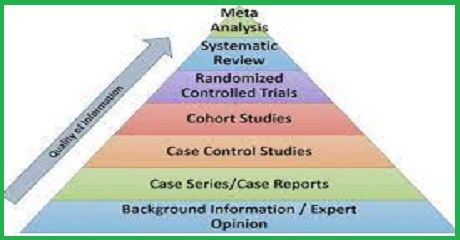Introduction:
Expert opinions play a crucial role in shaping the landscape of research across various disciplines. In the pursuit of knowledge, researchers often rely on the insights, analyses, and perspectives provided by experts in the field. This write-up explores the significance and impact of expert opinions in research, shedding light on how these insights contribute to the advancement of knowledge, the validation of research findings, and the overall enrichment of academic discourse.
1. Defining Expert Opinion:
Expert opinion refers to the informed judgments and perspectives offered by individuals recognized for their deep knowledge, experience, and expertise in a specific field. These experts may have conducted extensive research, published influential works, or possess practical experience that qualifies them to provide valuable insights in their respective domains. Their opinions carry weight due to their credibility and authority within the academic or professional community.
2. Guiding Research Directions:
One of the primary roles of expert opinions in research is guiding the direction of scholarly inquiry. Experts often identify gaps in existing literature, propose novel research questions, and offer valuable insights into emerging trends. Researchers benefit from the expertise of these individuals when shaping the scope and objectives of their studies, ensuring that their work aligns with current knowledge and addresses relevant issues.
3. Validating Research Findings:
When experts endorse or critique research findings, it adds a layer of validation to the work. Peer-reviewed journals often rely on expert opinions to assess the quality, rigor, and significance of submitted manuscripts. The stamp of approval from recognized experts enhances the credibility of research, providing assurance to both the academic community and the broader public that the findings are robust and contribute meaningfully to the field.

4. Enhancing Methodological Rigor:
Experts contribute significantly to the methodological rigor of research. Their insights can help researchers refine study designs, select appropriate methodologies, and address potential limitations. By drawing on the expertise of seasoned researchers, studies are more likely to be methodologically sound, ensuring that the data collected and the analyses conducted are reliable and valid.
5. Contextualizing Research within the Discipline:
Expert opinions play a crucial role in contextualizing research within the broader discipline. Through their comprehensive understanding of the field’s history, theories, and current debates, experts provide researchers with the necessary context to situate their work. This contextualization enriches the overall narrative of academic discourse, connecting individual studies to the ongoing conversation within the discipline.
6. Facilitating Interdisciplinary Collaboration:
In an era of increasing interdisciplinary research, expert opinions foster collaboration between researchers from diverse fields. By bringing in experts with varied backgrounds, research projects can benefit from a more holistic perspective, combining insights from different disciplines to tackle complex issues. This collaborative approach leads to a more comprehensive understanding of multifaceted problems.
7. Shaping Policy and Practice:
Expert opinions often extend beyond the academic realm, influencing policy decisions and shaping professional practices. Policymakers, industry leaders, and practitioners seek the guidance of experts to inform their decision-making processes. Whether in healthcare, environmental science, or technology, expert opinions bridge the gap between research and real-world application, contributing to evidence-based policy formulation and effective implementation.

8. Addressing Ethical Considerations:
Experts play a pivotal role in guiding researchers through ethical considerations. Their experience and knowledge help researchers navigate potential ethical dilemmas, ensuring that studies adhere to established ethical standards. This guidance is crucial in safeguarding the welfare of research participants and upholding the integrity of the research process.
9. Mentorship and Knowledge Transfer:
Beyond providing opinions on specific research endeavors, experts often serve as mentors, guiding the next generation of researchers. Their mentorship imparts not only technical skills but also the nuances of critical thinking, ethical conduct, and effective communication. This knowledge transfer is vital for sustaining a culture of excellence and integrity within the research community.
Conclusion:
In conclusion, expert opinions in research serve as linchpins that connect, validate, and propel the academic enterprise forward. From guiding the initial stages of research design to influencing policy decisions and shaping ethical considerations, the impact of expert opinions is multifaceted and profound. The collaborative synergy between researchers and experts fosters an environment where knowledge is not only advanced but also shared, ensuring that the collective wisdom of the academic and professional communities continues to flourish. As research evolves, the role of expert opinions remains integral, contributing to the ongoing quest for understanding and innovation across diverse fields of study.

Can you be more specific about the content of your article? After reading it, I still have some doubts. Hope you can help me.
Can you be more specific about the content of your article? After reading it, I still have some doubts. Hope you can help me.
Your point of view caught my eye and was very interesting. Thanks. I have a question for you.
cf51ki
85mmuw
cfw8cr
i35je1
I was studying some of your blog posts on this site and I conceive this web site is really instructive! Keep putting up.
Your article helped me a lot, is there any more related content? Thanks!
Make mornings more adorable with this Hello Kitty alarm clock CD player. Ideal for kids and collectors alike, this charming CD clock radio includes all the basics: AM/FM radio, programmable CD playback, and reliable alarm settings. Wake up to your favorite CD or a cheerful radio station with built-in stereo sound. A large digital display and simple controls make it easy to use, even for younger users. Combining cuteness with functionality, it’s a top pick among themed alarm clocks with CD players that bring fun and joy to your space.
I like what you guys are up also. Such intelligent work and reporting! Keep up the excellent works guys I’ve incorporated you guys to my blogroll. I think it’ll improve the value of my website 🙂
Thank you for your sharing. I am worried that I lack creative ideas. It is your article that makes me full of hope. Thank you. But, I have a question, can you help me? https://www.binance.com/sk/register?ref=OMM3XK51
Thank you for your sharing. I am worried that I lack creative ideas. It is your article that makes me full of hope. Thank you. But, I have a question, can you help me?
I truly appreciate this post. I have been looking all over for this! Thank goodness I found it on Bing. You have made my day! Thank you again
Thank you a lot for providing individuals with an extraordinarily brilliant possiblity to read in detail from here. It’s always very good and as well , packed with fun for me and my office acquaintances to visit your website more than three times a week to study the new guides you have. And of course, we are at all times satisfied with your attractive strategies served by you. Some 3 tips on this page are undeniably the simplest we’ve had.
Those are yours alright! . We at least need to get these people stealing images to start blogging! They probably just did a image search and grabbed them. They look good though!
Thanks for sharing. I read many of your blog posts, cool, your blog is very good.
Hey just wanted to give you a quick heads up. The text in your content seem to be running off the screen in Internet explorer. I’m not sure if this is a format issue or something to do with web browser compatibility but I figured I’d post to let you know. The design and style look great though! Hope you get the issue fixed soon. Kudos
I don’t think the title of your article matches the content lol. Just kidding, mainly because I had some doubts after reading the article.
Your point of view caught my eye and was very interesting. Thanks. I have a question for you.
hello!,I love your writing so much! share we communicate extra approximately your post on AOL? I require a specialist in this space to resolve my problem. Maybe that’s you! Looking ahead to see you.
It’s the best time to make a few plans for the longer term and it is time to be happy. I have learn this post and if I may I desire to suggest you few interesting things or suggestions. Perhaps you can write subsequent articles relating to this article. I desire to learn even more things about it!
Enjoyed examining this, very good stuff, regards. “Whenever you want to marry someone, go have lunch with his ex-wife.” by Francis William Bourdillon.
Thanks for sharing. I read many of your blog posts, cool, your blog is very good. https://www.binance.info/register?ref=IXBIAFVY
Excellent write-up
Superb blog! Do you have any tips and hints for aspiring writers? I’m planning to start my own website soon but I’m a little lost on everything. Would you recommend starting with a free platform like WordPress or go for a paid option? There are so many options out there that I’m totally confused .. Any recommendations? Kudos!
Great write-up, I’m normal visitor of one’s website, maintain up the excellent operate, and It is going to be a regular visitor for a long time.
I have been surfing online more than 3 hours today, yet I never found any interesting article like yours. It’s pretty worth enough for me. In my opinion, if all webmasters and bloggers made good content as you did, the web will be much more useful than ever before.
Thanks for sharing. I read many of your blog posts, cool, your blog is very good.